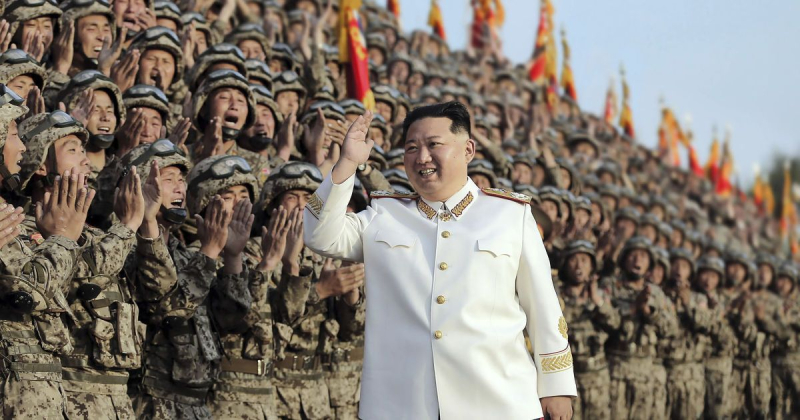North Korea has expanded production of chemical warfare agents, and South Korea may be a target.

North Korea is actively developing chemical weapons and preparing them for deployment at the front lines. The media reported the completion of test launches of ballistic missiles that can carry chemical payloads. In the event of war, they can be used together with nuclear weapons.
This was reported by the British publication The Telegraph, citing sources in Daily NK.
According to a senior North Korean regime official, the DPRK authorities view chemical weapons as a strategic tool to destroy enemy headquarters and critical infrastructure before a possible nuclear strike.
The most likely target is South Korea, which has been officially at war with Pyongyang since the 1950s. Kim Jong-un has repeatedly threatened to use nuclear weapons if provoked, and now there are reports of increased development of chemical warfare agents.
South Korean intelligence estimates that North Korea's arsenal could contain between 2,500 and 5,000 tons of chemicals, including sarin, mustard gas, phosgene, VX, and cyanide. VX is believed to have been used in 2017 to assassinate the half-brother of North Korean leader Kim Jong-nam.
A 2022 report by the US RAND Corporation also warned that a single attack using 1,000 kg of sarin could kill up to 125,000 people.
Additionally, North Korea is reported to be working on new biochemical agents that can incapacitate targets without causing lethal effects.
The entire chemical arsenal is controlled by the Nuclear-Chemical Defense Bureau, which is part of the army. Seven specialized brigades of the DPRK are already preparing for chemical warfare. The world is once again facing a threat of unprecedented proportions.
Let us recall that North Korea plans to significantly expand its military presence on the Russian side, increasing the number of soldiers sent to 30 thousand.
Western analysts estimate that about 4,000 North Korean soldiers have been wounded or killed while participating in combat operations in Russia. Despite the losses, military cooperation between Moscow and Pyongyang is only growing stronger.

